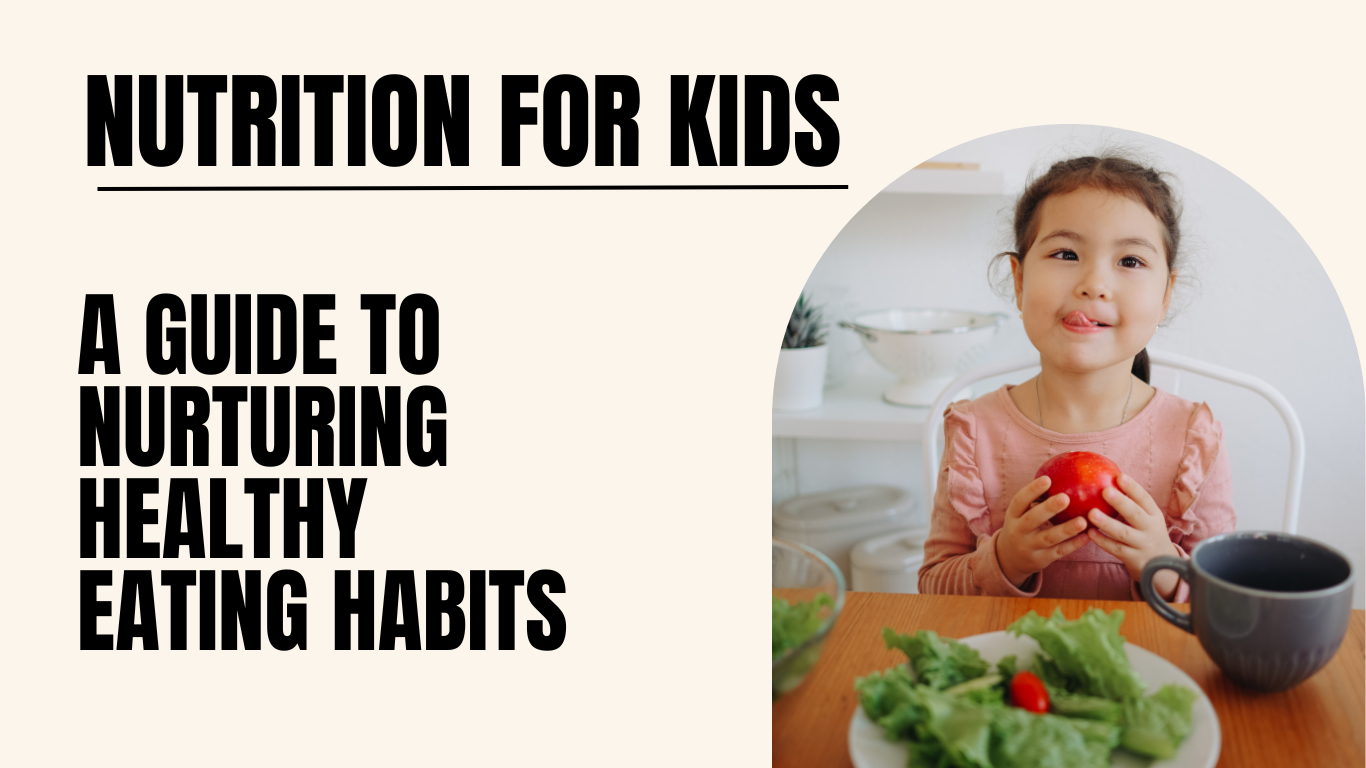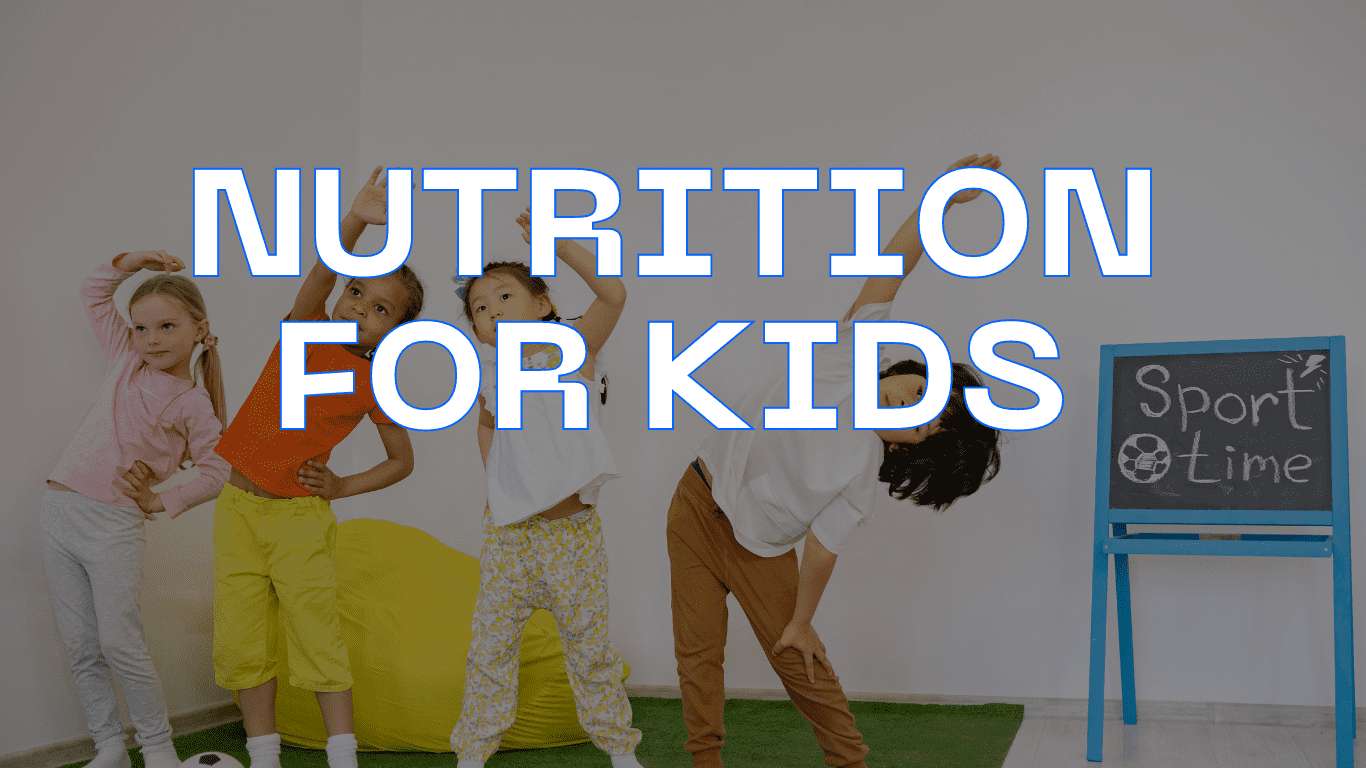Nutrition for Kids: One of the most important things to think about while trying to raise happy, healthy kids is their diet. An important factor in a child’s growth, development, and general health is proper nutrition. It is crucial for parents or other caregivers to comprehend the importance of starting children out in life with a balanced and nourishing diet. In order to establish the groundwork for a lifetime of health and wellness, this article seeks to offer insightful information and helpful advice on encouraging healthy eating habits in children.
The Building Blocks of Nutrition
- Understanding Children’s Nutritional Needs(Nutrition for Kids)
To support their rapid growth and development, children have specific nutritional needs. Their general health depends on nutrients including protein, carbs, lipids, vitamins, and minerals. - An Important Dietary Balance (Nutrition for Kids) A balanced diet is essential for kids because it guarantees they get the proper amounts of all the nutrients they need. To encourage optimum health, consume a range of foods from all food groups.
- What Macronutrients Do (Nutrition for Kids) Discuss the importance of proteins, carbs, and fats in a child’s diet as well as the roles they play in the body.
Creating Healthy Eating Habits
- Making Solid Foods Available (Nutrition for Kids) Investigate the procedure for weaning infants off of breast milk or formula and onto meals. To address their dietary demands, provide age-appropriate foods.
- Promoting the Consumption of Fruit and Vegetables Emphasize the value of fresh produce for children’s diets. Give children appealing methods to prepare these foods.
- Energy-Providing Whole Grains (Nutrition for Kids) Describe the advantages of whole grains and how they give busy children a steady source of energy.
- Foods High in Protein for Growth (Nutrition for Kids) Talk about the different types of protein that are good for kids, such as lean meats, fish, lentils, and dairy products.
- Optimal Fats for Brain Growth Describe the importance of good fats for brain growth and cognitive function, such as omega-3 fatty acids.
Nurturing Healthy Eating Habits
- Set a good example To set a good example for your children, practice healthy eating habits yourself. Kids learn from their parents and other adults in their lives.
- Enhance the Dining Experience In order to make meals fun for kids, provide a pleasant and welcoming atmosphere.
- Limit processed foods and sugary beverages Describe the potential risks associated with processed foods and sugary drinks while promoting healthier choices.
- Hydration Is Important The value of being hydrated and the place of water in a child’s diet should be emphasized.
- Snacking consciously Describe shrewd eating options and the advantages of selecting wholesome snacks.
Addressing Nutritional Challenges
- Managing Picky Eaters
- Describe ways to deal with fussy eaters and broaden their gastronomic horizons.
- Food Intolerances and Allergies To ensure that children’s diets are safe, talk about how to handle food allergies and intolerances.
- Managing Obesity and Binge Eating Focus on developing a balanced eating strategy as you address the issues of childhood obesity and overeating.
Conclusion
In conclusion, it is critical for children’s physical, mental, and emotional development that they acquire appropriate eating habits at a young age. We can set our children up for a healthier future by being aware of their nutritional needs and fostering a pleasant eating environment. Keep in mind that even tiny dietary modifications made today might have a big impact later on.
FAQs About Nutrition for Kids
- Q: How can I encourage my child to eat more fruits and vegetables? A: You can make fruits and vegetables more appealing by cutting them into fun shapes or blending them into smoothies.
- Q: Are organic foods better for kids? A: Organic foods can be a good option as they are free from certain pesticides, but a balanced diet with a variety of foods is most important.
- Q: Can I give my child supplements for nutrition? A: It’s best to consult with a pediatrician before giving any supplements to ensure they are necessary and safe.
- Q: What are some healthy snack options for kids? A: Nuts, yogurt, whole-grain crackers, and fresh fruit are excellent and nutritious snack choices.
- Q: How do I handle my child’s food allergies at school? A: Communicate with the school staff about your child’s allergies, provide safe snacks, and ensure they understand the severity of the allergy.





